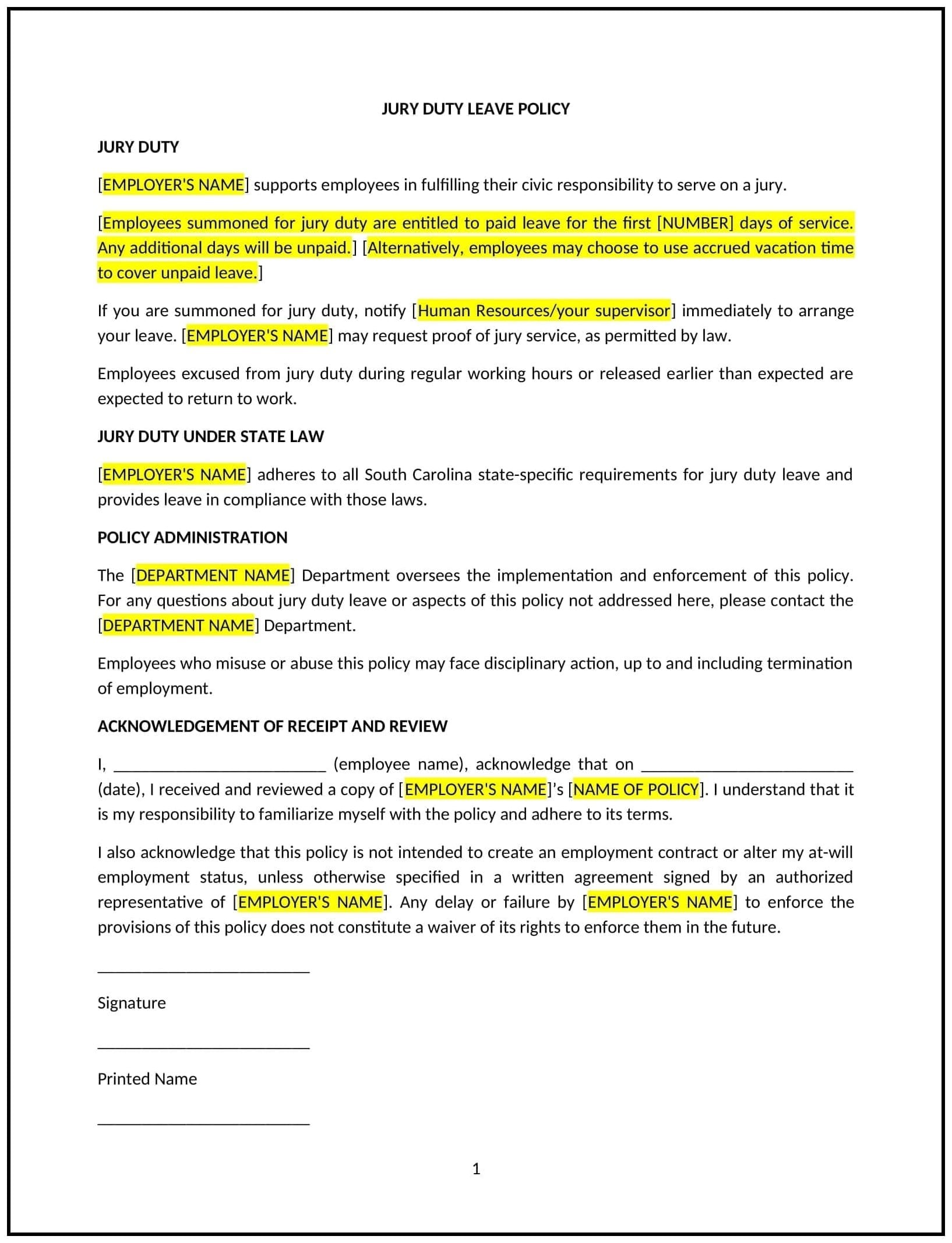Jury duty leave policy (South Carolina): Free template
Got contracts to review? While you're here for policies, let Cobrief make contract review effortless—start your free review now.

Customize this template for free
Jury duty leave policy (South Carolina)
This jury duty leave policy is designed to help South Carolina businesses establish guidelines for employees who are summoned to serve on a jury. It outlines procedures for requesting leave, maintaining job protection, and complying with state and federal laws.
By adopting this policy, businesses can support employees in fulfilling their civic duties, ensure compliance with legal requirements, and foster a positive work environment.
How to use this jury duty leave policy (South Carolina)
- Define jury duty leave: Explain what constitutes jury duty leave and its purpose, such as serving on a jury or attending court proceedings.
- Establish request procedures: Provide steps for employees to request leave, including submitting a jury summons and notifying their supervisor.
- Address job protection: Guarantee that employees will return to the same or an equivalent position after completing jury duty.
- Set compensation guidelines: Specify whether employees will be paid during jury duty leave or required to use paid time off.
- Train managers: Educate supervisors on handling jury duty leave requests and maintaining workflow during employee absences.
- Review and update: Assess the policy annually to ensure it aligns with evolving legal standards and business needs.
Benefits of using this jury duty leave policy (South Carolina)
This policy offers several advantages for South Carolina businesses:
- Supports civic engagement: Demonstrates a commitment to helping employees fulfill their civic responsibilities.
- Aligns with legal standards: Helps businesses comply with state and federal laws related to jury duty leave.
- Builds employee trust: Shows employees that the business values their contributions to the justice system.
- Reduces turnover: Encourages employees to return to work after completing jury duty, reducing recruitment and training costs.
- Enhances reputation: Demonstrates a commitment to employee rights and community involvement.
Tips for using this jury duty leave policy (South Carolina)
- Communicate the policy: Share the policy with employees and include it in the employee handbook.
- Provide training: Educate managers on handling jury duty leave requests and maintaining workflow during employee absences.
- Monitor adherence: Regularly review leave requests to ensure they are addressed promptly and fairly.
- Address issues promptly: Take corrective action if jury duty leave requests are mishandled or denied improperly.
- Update regularly: Assess the policy annually to ensure it aligns with evolving legal standards and business needs.